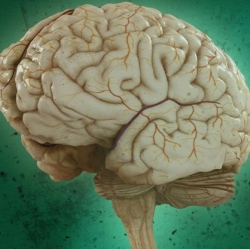
The National Institutes of Health is on the hunt for more than 10,000 kids to participate in a decade-long study of brain development. Today, recruitment began for the Adolescent Brain Cognitive Development (ABCD) study, which will follow children from the ages of nine or 10 into early adulthood.
Researchers will interview the kids, image their brains, and give them behavioral tests. The study will attempt to unravel how kids and teenagers are shaped by different experiences, such as smoking, getting poor sleep, playing video games or participating in sports (and sometimes, getting head injuries as a result).
“We know the brain is still developing well into the mid-twenties, making it vulnerable to a host of influences,” NIH Director Francis S. Collins said in a statement. Tracking the kids will offer, “greater insight into what helps adolescents traverse that potentially tumultuous time to become healthy and productive adults.”
